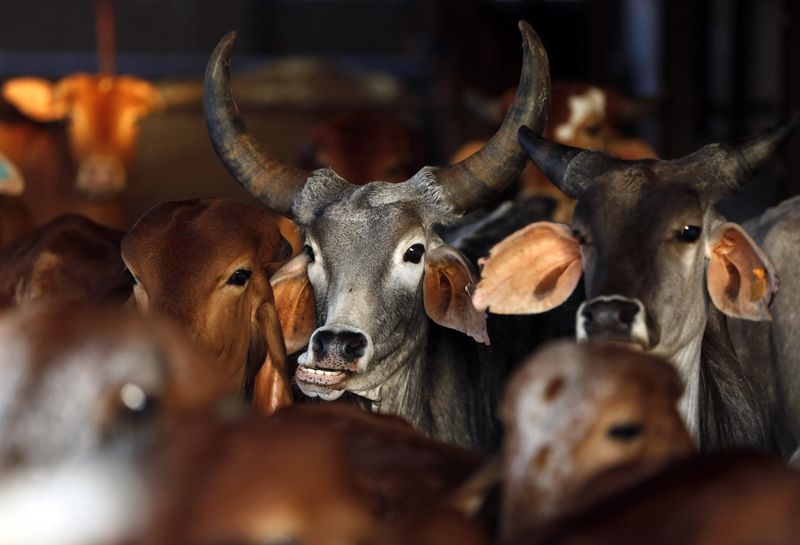PARIS (Reuters) - A project to export cattle to Iran from Normandy in northern France has been halted due to the United States' renewed sanctions against Tehran, a French Senator said, as Washington's policy takes its toll on its European allies.
The sanctions, following U.S. President Donald Trump's withdrawal from an international accord on Iran's nuclear programme, took effect on Tuesday. They have led many European companies to back out of investments in Iran, including French energy giant Total and car maker Peugeot.
The U.S. measures also blocked the development of live cattle exports after a successful trial last year with Iranian company Seamorgh, said Nathalie Goulet, a senator for the Orne region in Normandy where the cows were bred.
While food and farming sectors are not directly targeted by Washington, the sanctions have made banks reluctant to finance deals, while companies with ties to the United States are afraid of incurring any penalties.
The cattle project, established by several French agricultural groups with Seamorgh in 2016, was set to see a thousand cows of the Charolais beef-producing breed exported following an initial 300 animals in 2017 but is now on hold, Goulet, an active backer of the project, told Reuters.
"On the one hand, the banks have a lot of concerns. The other reason is that intermediaries in the project have issues," she said, citing the withdrawal of cooperative Agrial, one of the French partners.
Neither Agrial nor Seamorgh commented when contacted by Reuters.
Goulet said the project was potentially worth several million euros. French cows were to be transported by air to Iran to be fattened before being slaughtered. Around 300 already reached the Middle Eastern country in last year's trial.
"This all went very well and we were looking at extra volume, targeting 20,000 cows a year," Alexandre Wahl of Normandy's economic development agency said.
The European Union has pledged to shield European companies in Iran from U.S. sanctions, with the EU's executive adopting a so-called blocking statute, but Goulet said its scope was unclear.
"We need more from Europe and above all to find a response to American extra-territoriality," said Goulet.
The cattle exports were part of a series of agricultural projects initiated by France and Iran after the 2015 nuclear accord that led to previous sanctions against Tehran being eased.
As the EU's largest agricultural producer, France often promotes the sector in economic discussions. It has been particularly focused on boosting exports for its declining cattle sector.
Iran, meanwhile, has been keen to overhaul its food and farming industries to meet demand from its 80 million population and adapt to dwindling water resources.
